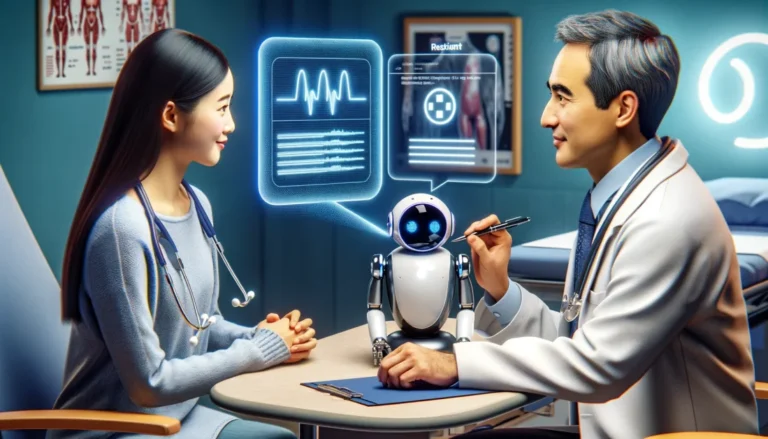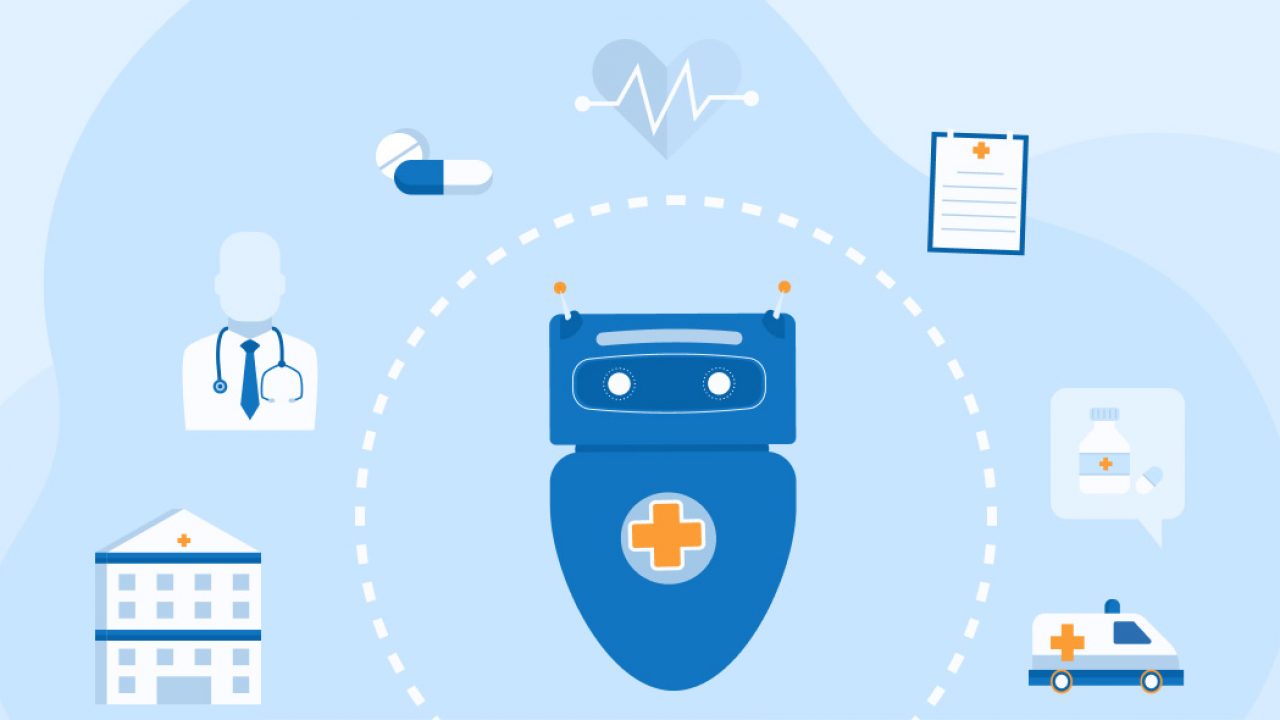
Top 10 AI-Driven Tools for Automating Healthcare Systems
The healthcare industry is undergoing a digital transformation, driven by the need to improve patient care, reduce costs, and streamline operations. Central to this transformation is the adoption of AI automation tools in healthcare, which are revolutionizing everything from patient data management to medical practice workflows. With AI-driven healthcare solutions, healthcare providers can automate routine tasks, optimize resource allocation, and enhance decision-making, leading to better outcomes for both patients and providers.
In this blog, we will explore the top 10 AI-driven tools for automating healthcare systems. These tools not only enhance operational efficiency but also play a vital role in improving patient care. We will discuss how each tool contributes to the overall automation of healthcare operations and why they are becoming essential in modern medical practice management.
1. AI-Powered Electronic Health Records (EHR) Systems
One of the most critical components of healthcare is the efficient management of patient data. Traditional EHR systems require manual data entry and updates, which can lead to errors and delays. AI automation tools in healthcare are changing that by automating the collection, storage, and retrieval of patient records.
AI-powered EHR systems use natural language processing (NLP) to capture physician notes, extract relevant information from unstructured data, and update patient records automatically. This reduces the time healthcare professionals spend on administrative tasks and ensures that patient data is always accurate and up-to-date.
Benefits:
- Faster data entry with reduced errors
- Real-time access to patient histories
- Improved compliance with healthcare regulations
2. AI for Medical History Automation
Accurate and timely access to a patient’s medical history is crucial for delivering quality care. AI for medical history automation simplifies this process by automatically compiling patient histories from multiple data sources, including previous treatments, lab results, and imaging studies.
These AI-driven tools analyze patient data to identify trends, predict potential health risks, and recommend preventive measures. The automation of medical history not only saves time but also reduces the likelihood of human error in diagnosis and treatment planning.
Benefits:
- Automated updates to patient medical histories
- Predictive analytics for better patient outcomes
- Reduced errors in patient data management
3. Healthcare Automation Software for Scheduling and Billing
Managing appointments, billing, and insurance claims is a time-consuming task for healthcare providers. Healthcare Automation Software automates these processes, allowing staff to focus on patient care rather than administrative duties. AI-powered scheduling tools can match patients with available doctors based on their needs, while billing software ensures that claims are processed accurately and quickly.
By automating these tasks, healthcare providers reduce the risk of scheduling conflicts, billing errors, and delayed payments, ultimately improving both patient satisfaction and operational efficiency.
Benefits:
- Streamlined appointment scheduling and management
- Automated billing and claims processing
- Reduced administrative workload for staff
4. AI Chatbots in Healthcare for Patient Interaction

AI Chatbots in Healthcare are revolutionizing patient communication by providing instant responses to common questions, scheduling appointments, and offering health advice. These chatbots are available 24/7, ensuring that patients have access to support at all times.
AI chatbots can also assist with triaging patients by collecting information about their symptoms and recommending whether they should seek immediate care or book an appointment with their physician. By automating patient communication, chatbots improve patient engagement and reduce the administrative burden on healthcare providers.
Benefits:
- 24/7 patient support and interaction
- Automated appointment scheduling and reminders
- Enhanced patient engagement and satisfaction
5. AI-Powered Diagnostic Tools
Accurate and timely diagnosis is a critical component of effective healthcare. AI-powered diagnostic tools use machine learning algorithms to analyze medical images, lab results, and patient histories to provide more accurate diagnoses. These tools can detect abnormalities in medical imaging, such as X-rays or MRIs, and suggest potential diagnoses based on the data.
By automating the diagnostic process, AI tools help healthcare providers make more informed decisions, reduce diagnostic errors, and improve patient outcomes.
Benefits:
- Faster and more accurate diagnoses
- Reduced diagnostic errors
- Enhanced decision-making for healthcare providers
6. AI Medical Practice Management Tools
Managing the day-to-day operations of a medical practice involves a variety of tasks, from scheduling to compliance management. AI medical practice management tools automate many of these tasks, ensuring that healthcare providers can focus on delivering patient care rather than managing paperwork.
These tools can automate the management of patient records, billing, compliance tracking, and even staff schedules, ensuring that medical practices run smoothly and efficiently.
Benefits:
- Automated management of daily practice operations
- Improved compliance and record-keeping
- Enhanced operational efficiency for medical practices
7. AI for Enterprise Solutions in Healthcare
For larger healthcare organizations, managing multiple departments, facilities, and patient data streams can be challenging. AI for Enterprise solutions provide centralized management tools that automate workflows across the entire organization. These tools help optimize resource allocation, manage large-scale patient data, and ensure that healthcare facilities operate efficiently.
Enterprise AI healthcare tools offer scalable solutions that can grow with the organization, ensuring that operations remain streamlined even as patient demand increases.
Benefits:
- Centralized management of healthcare operations
- Scalable solutions for growing healthcare organizations
- Optimized resource allocation across multiple facilities
8. AI Automation for Inventory Management
Ensuring that healthcare facilities are stocked with the necessary medical supplies is essential for providing uninterrupted care. AI-powered healthcare automation tools for inventory management monitor stock levels in real time and automatically reorder supplies when necessary.
These tools use predictive analytics to forecast demand based on patient inflow and historical data, ensuring that healthcare providers always have the necessary equipment and medications on hand.
Benefits:
- Real-time inventory tracking
- Automated supply ordering
- Reduced risk of stock shortages
9. AI-Driven Remote Monitoring Tools
Remote patient monitoring has become increasingly important, particularly in the wake of the COVID-19 pandemic. AI-driven healthcare solutions for remote monitoring allow healthcare providers to track patients’ health metrics, such as heart rate, blood pressure, and glucose levels, in real time.
These tools use AI to analyze the data and send alerts to healthcare providers if a patient’s condition deteriorates. This allows for early interventions and better management of chronic conditions, improving patient outcomes while reducing hospital visits.
Benefits:
- Real-time remote monitoring of patient health
- Early detection of health issues
- Improved management of chronic conditions
10. AI Tools for Personalized Treatment Plans
AI is also playing a crucial role in the development of personalized treatment plans. By analyzing a patient’s medical history, genetic data, and lifestyle factors, AI-powered tools can recommend customized treatment plans that are tailored to the individual’s specific needs.
These personalized treatment plans improve patient outcomes by ensuring that each patient receives the most appropriate care for their condition. AI-powered healthcare automation tools analyze vast amounts of data to suggest the most effective treatment options, reducing the likelihood of trial-and-error approaches.
Benefits:
- Personalized treatment plans based on patient data
- Improved patient outcomes through tailored care
- Reduced trial-and-error in treatment planning
Steps to Choose AI Tools for Automating Healthcare Operations
When selecting AI automation tools in healthcare, it’s essential to consider the specific needs of your healthcare organization. Here are the steps to help you make an informed decision:
- Assess Your Needs
Determine which areas of your healthcare operation could benefit the most from automation, such as patient management, diagnostics, or inventory control. - Evaluate Available AI Tools
Research various AI-driven healthcare solutions to find the tools that best fit your organization’s needs. Consider factors such as scalability, integration with existing systems, and ease of use. - Consider Compliance
Ensure that the AI tools you select comply with healthcare regulations, such as HIPAA, to protect patient data and maintain compliance with legal standards. - Pilot the AI Solutions
Before full implementation, test the AI tools in a small pilot program to ensure they meet your organization’s needs and function as expected. - Train Your Staff
AI tools are only as effective as the people using them. Provide training to ensure that healthcare staff understand how to use the AI systems and can troubleshoot any issues.
Conclusion
The adoption of AI automation tools in healthcare is transforming how healthcare providers manage operations, deliver patient care, and improve efficiency. From AI-powered EHR systems to AI chatbots in healthcare, these tools are automating critical tasks and enhancing decision-making processes across the healthcare spectrum.
By integrating AI-driven healthcare solutions, healthcare providers can optimize resource management, improve patient outcomes, and ensure the efficient operation of medical practices. As the healthcare industry continues to evolve, the role of AI in automating healthcare systems will only become more prominent, offering new opportunities for improved care and operational excellence.